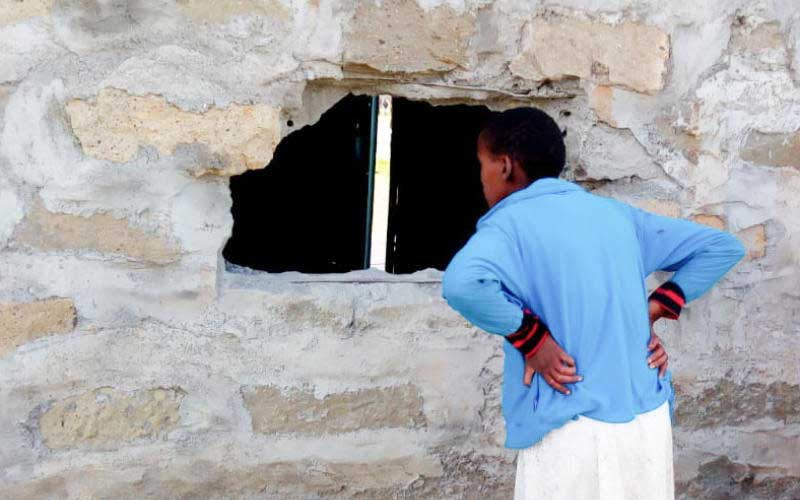×
The Standard e-Paper
Join Thousands Daily

A resident of Molo inspects a hole dug by robbers who stole from shop selling Liquefied Petroleum Gas during curfew hours on April 8. [Joseph Kipsang, Standard]
Since President Uhuru Kenyatta announced a dusk-to-dawn curfew in March, people in various parts of Kenya have been complaining of rising robbery incidents.